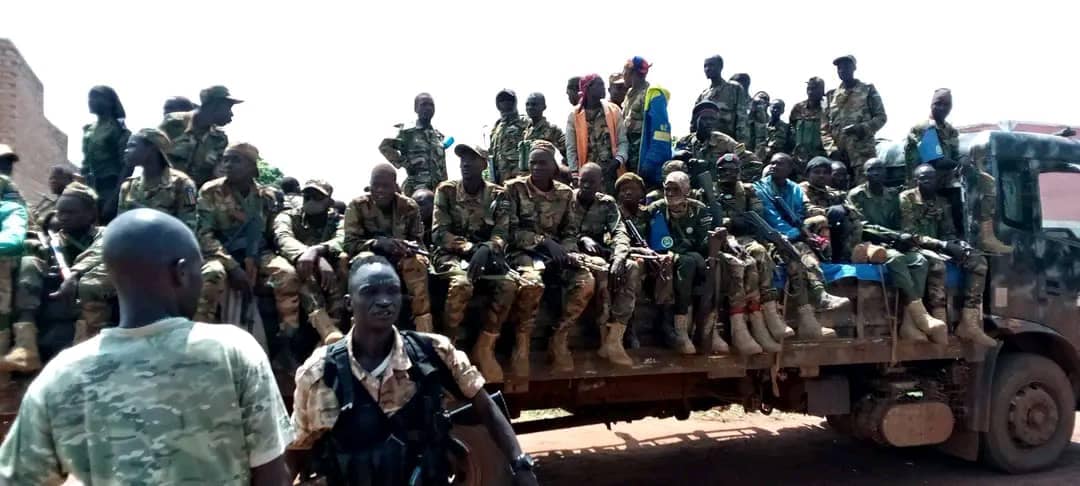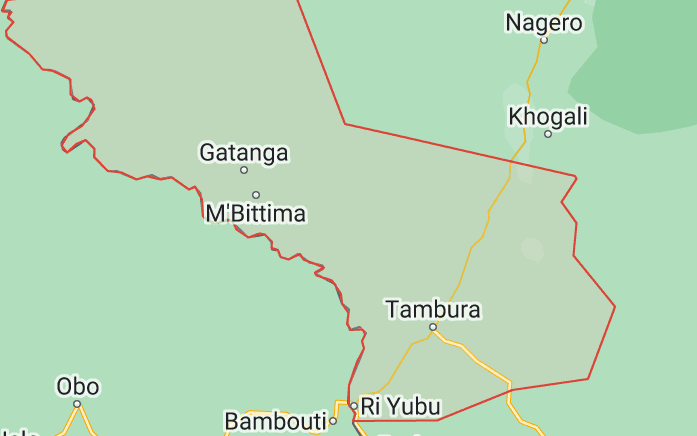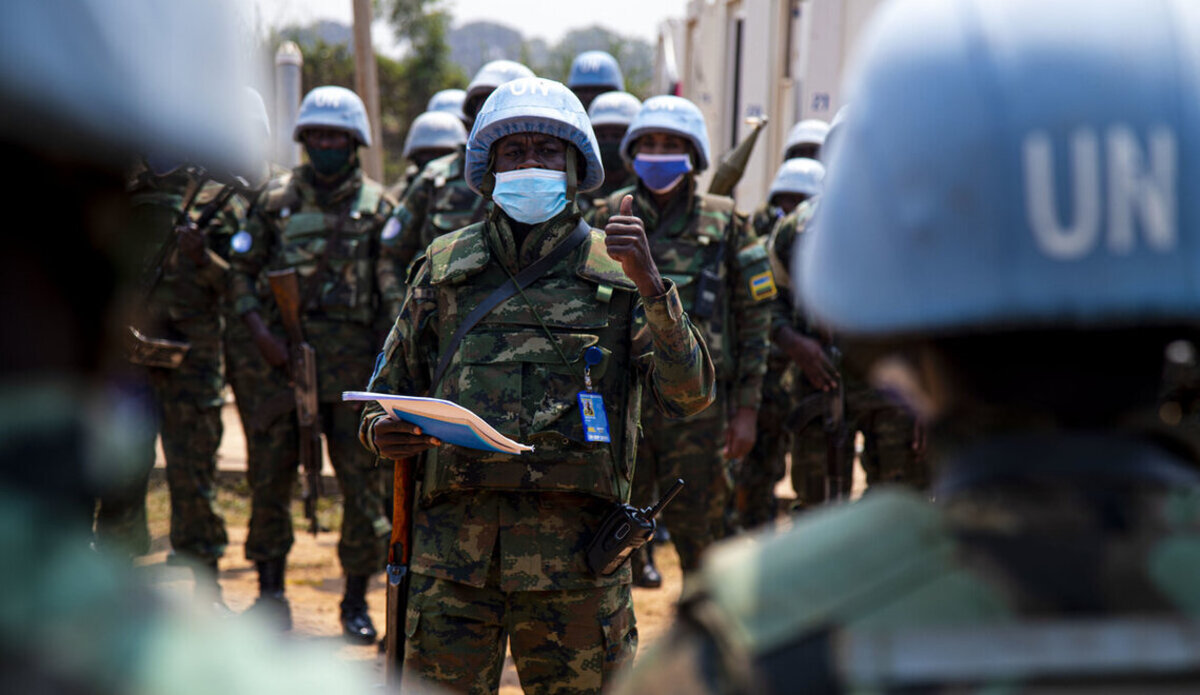Magwi returnees regain hope after Rough experiences in Uganda camps
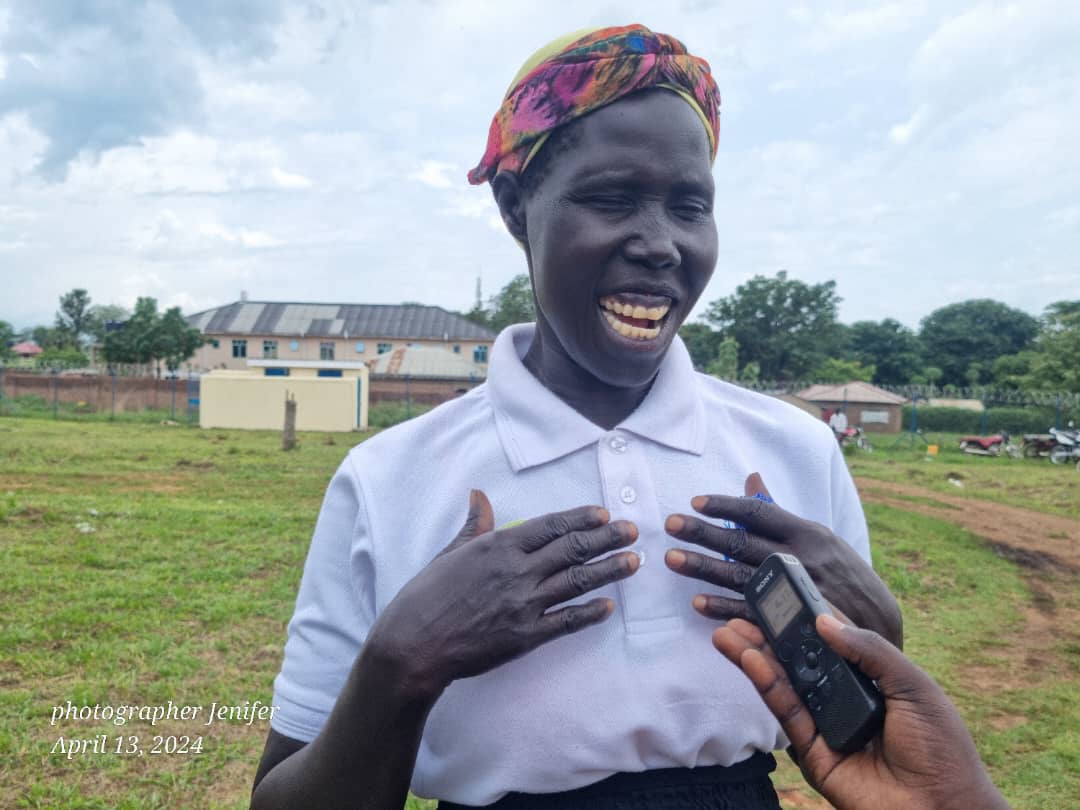
Achiro Grace. [Jenifer James, The City Review]
Hundreds of South Sudanese were forced to troop back from the refugee camps in Uganda after a scale-down of food rations setting them on a collision path with hunger.
In 2016, most of the women escaped from Eastern Equatoria to the neighbouring countries such as Uganda and Kenya for settlement during the war in the country. But their stay would then be interrupted by the fizzling humanitarian aid which meant that they had to seek alternative means of keeping their families.
On Saturday, April 13, 2024, during the launch of the youth multipurpose training centre at Magwi County in Eastern Equatoria, women narrated the reasons and challenges that forced them to come back to South Sudan.
One of these women was Achiro Grace who is now a widow and mother of six children and has had enough of the worst that the war can offer.
Insecurity was the major reason for their movement out of the country and Achiro, like the other women, could not take chances.
Achiro narrated that the UN agencies provided all the necessary help they could require at the time and their children were enrolled in schools for studies. But this was for a short while.
“I left South Sudan with a group of women from here (Magwi) during the 2016 war with the fear of insecurity and gunshots in the state, looking for a better place to settle with my children,” she narrated.
“Few years later, the food ratios were reduced, so I decided to come back to Magwi to assess the security situation that people keep saying is okay.”
She came home last year just to do her research and this will help her in making a decision on whether to shift her family back to South Sudan.
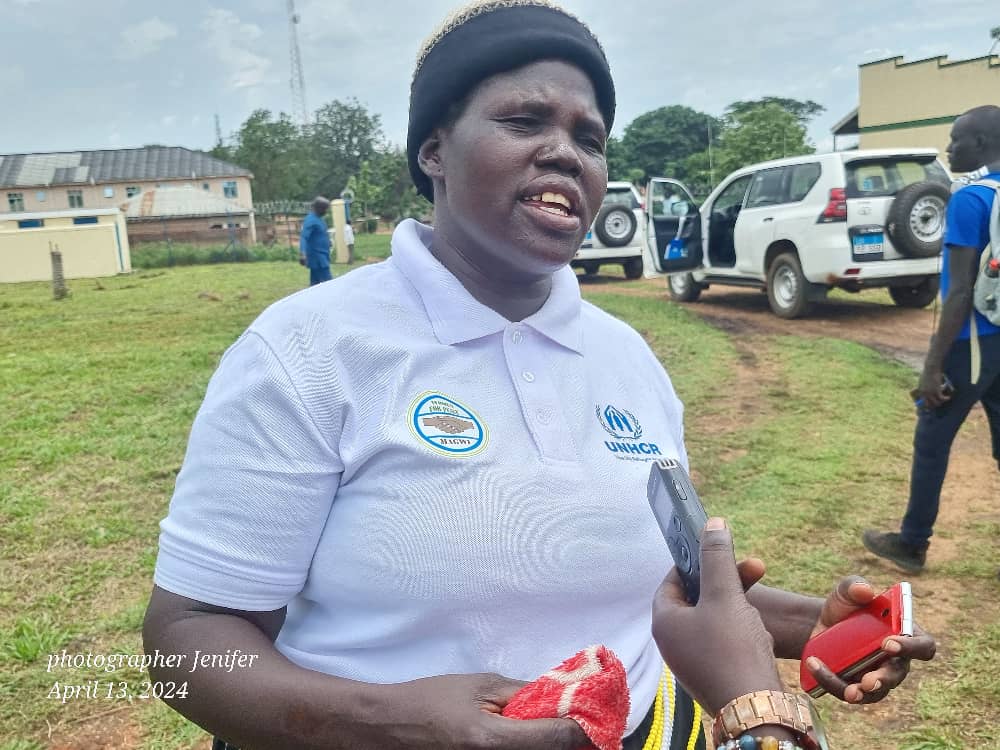
Josca Abalo [Jenifer James, The City Review]
“I returned last March. I came back to see whether the security situation in Eastern Equatoria State was stable or not since there was nothing I could do to make things better in the camp. I kept hearing that things were better, so I had to return from Bidibidi to the Magw,”she said.
According to Achiro, there are a lot of challenges that women are facing in the camp. Apart from food ratios, women wade through the dangers of rapists who want to prey on them whenever they are out collecting firewood.
She said: “While in Uganda, women were raped in the forest while getting firewood for cooking, and the kind of food that people are getting is so small that they can’t sustain the family for one month.”
She joined a women group that now focuses on farming the dividends she reaps from this decision will not make her lament.
“I would not have anything to earn money to treat my children or even me; home is home; when I returned, I was welcome; I started farming with the women of the peace group in Magwi; I have made my house; my children are studying; and we are happy now.”
She called on the government of South Sudan to conduct routine inspections of the camps to ascertain the living standards of the citizens there.
“I want our government to visit the people at the refugee’s camp and see the suffering of the people there. Many have an interest in coming back home, but there is no means of transport,” she said.
Achiro called on the fellow women who are still in Uganda to come back home and start a new life since there is peace and stability in the country.
Josca Abalo, a widow and mother of eight children, corroborated Achiro’s sentiments on the life at the camps in Uganda, saying the reduction in the quantity of food aid had affected many families.
“We received 5kg of maize and 2 kg of beans for the month, yet the food can’t sustain the family. Second, I would go and collect firewood, but the landowners would pick up our pangs that we are not allowed to firewood,” she recalled.
Josca said that the Women for Peace group in Magwi assisted the returnees and provided land them to start farming—which is their primary source of living now.
“I am not going back to the camp anymore because I returned with my children and am doing my farming activities here in Magwi County,” she said.
Betty Aluak who has returned to South Sudan because of the same challenge of food ratios, said that her life had changed for the better since she returned home.
“We usually hear that there are free schools in the camp, but children have dropped out because of the standard and the conditions. I am happy because now I am safe in my own land.”
Last year, the World Food Programme was forced to reduce its food ratios in Uganda refugee’s camp from 70 to 30 per cent and it now prioritises the most vulnerable people. Uganda is hosting almost one million South Sudanese refugees.
